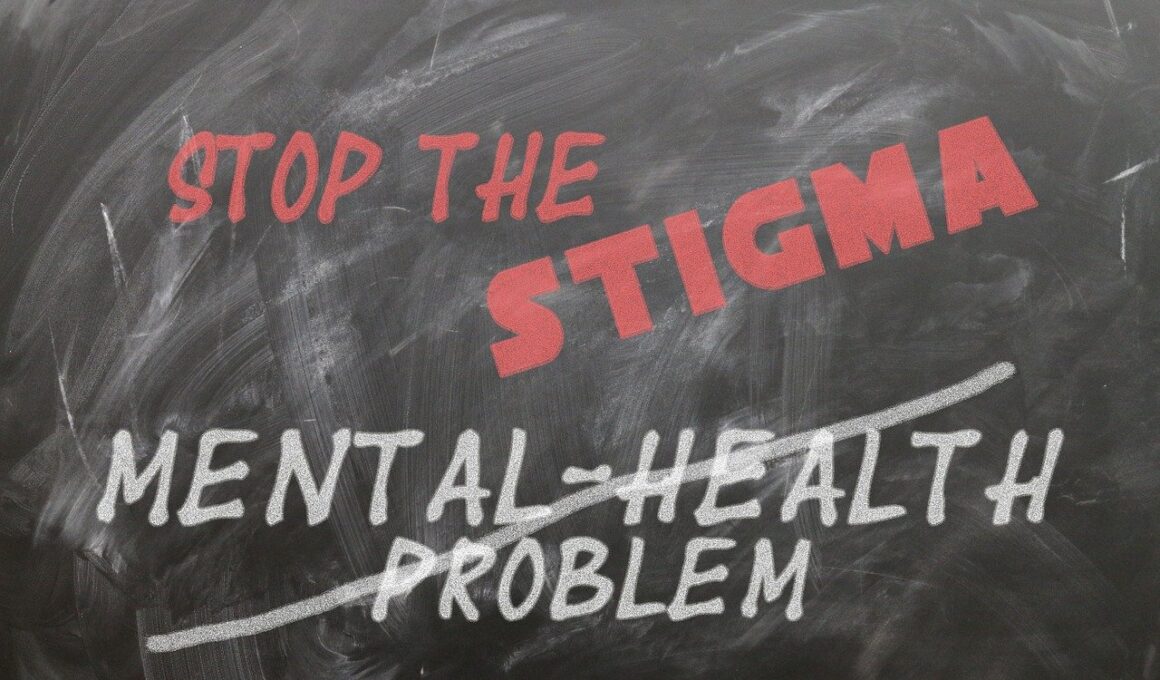Addressing Mental Health Stigma in Sports
In the world of sports, mental health has often been a neglected topic, overshadowed by the focus on physical prowess and performance. Athletes are pressured to maintain an image of perfection, which can lead to feelings of isolation and anxiety. Despite the increasing public awareness regarding mental health issues, many athletes still hesitate to speak out due to fear of judgement. This situation creates a barrier that prevents them from seeking the help they truly need. The stigma associated with mental health problems impacts not just individual athletes but the sporting community as a whole. As a result, it is crucial to foster an environment where athletes feel safe and understood. Creating awareness around mental health can encourage more athletes to be open about their struggles. Moreover, promoting peer support and access to mental health resources can cultivate a positive atmosphere. Through education and understanding, we can help dismantle negative perceptions. This transformation is vital for the wellbeing of athletes and can ultimately facilitate better performances and improved mental resilience within sports. We must challenge stereotypes and ensure that mental health is treated with as much importance as physical fitness.
One of the core challenges in addressing mental health stigma in sports is the traditional image of a “tough” athlete. This stereotype suggests that showing vulnerability is a sign of weakness, making athletes reluctant to reveal their inner struggles. Many elite sports figures have consistently portrayed a façade of unbreakable strength and determination. This unrealistic portrayal can deter those facing mental health challenges from coming forward. Consequently, we must shift the cultural narrative surrounding athletes. Encouragement from influential figures in sports who openly share their mental health experiences can significantly impact public perceptions. When high-profile athletes speak candidly about their mental health struggles, it paves the way for acceptance and understanding within the community. Furthermore, engaging discussions in media can help normalize conversations about mental health within sports. Comprehensive training programs for coaches and staff that address mental health can also be beneficial. Building awareness about mental health in coaching frameworks promotes a more supportive environment for athletes. Some organizations are already implementing these initiatives. By taking proactive steps, we can slowly dismantle the stigma surrounding mental health in sports, allowing athletes to prioritize their mental well-being alongside their physical training.
The Role of Coaches and Staff
Coaches and support staff play an essential role in shaping the mental landscape of their teams. They are often the first point of contact for athletes experiencing mental health issues. Therefore, training staff in mental health awareness can dramatically improve how athletes navigate their challenges. Professionals can equip coaches with the skills necessary to identify early signs of mental health struggles. Understanding the importance of mental health not only benefits athletes but also enhances team dynamics and performance. Supportive coaching practices can foster trust between athletes and their coaches. This connection can encourage open discussions about feelings of stress, anxiety, or depression. Training programs that include mental health components serve as an excellent resource for coaches. Staff can learn how to create a safe environment where athletes feel comfortable expressing their concerns. Team-building activities focusing on mental wellness can also strengthen these relationships. Engaging all team members in supporting one another cultivates a sense of belonging. A positive team culture can help dismantle the stigma surrounding mental health, encouraging athletes to seek the support they deserve when facing challenges.
Another key element in addressing mental health stigma in sports is education. Informing athletes, coaches, and the sports community about mental health issues fosters understanding and empathy. Education can eliminate misconceptions about mental illness and empower individuals to speak out. Workshops, seminars, and resources focused on mental wellness can encourage guidance for both athletes and support staff. By incorporating mental health education into training regimens, organizations can normalize the dialogue surrounding mental health. Even online platforms and social media can be leveraged for this purpose. Initiatives such as campaigns involving mental health advocates can promote awareness. Athletes must know they are not alone in their struggles; sharing stories and personal experiences can resonate deeply with others. Schools and sports institutions can initiate programs that provide mental health resources to students and athletes. Encouraging open discussions in classrooms can create lasting change within sports culture. While the existing stigma remains challenging to combat, ongoing education and conversation can minimize its effects. Our goal should be fostering an inclusive atmosphere where mental health is recognized as a core component of overall athlete wellness.
Creating Support Networks
In addition to education and awareness, fostering strong support networks is vital for athletes’ mental health. These networks can ease feelings of loneliness and isolation, allowing individuals to share their experiences with others who can relate. Support groups, either formal or informal, can effectively address mental health challenges. They provide a platform for athletes to connect and discuss common issues while offering reassurance. Professional support from psychologists and counselors specializing in sports can also serve athletes effectively. Mental health professionals can guide individuals through their challenges with proven strategies. Creating partnerships with mental health organizations can enhance the resources available to athletes. Encouraging positive relationships between teammates is equally important; they can form a crucial support system in times of need. Through peer mentorship programs, veteran athletes can provide guidance and encouragement to younger members. Establishing rituals and communal activities that promote mental well-being fosters a sense of belonging. This is especially crucial during difficult seasons or competitions. By reinforcing the value of support and camaraderie, the stigma surrounding mental health can be diminished, leading to a healthier sporting environment overall.
Furthermore, mental health professionals must integrate their practices within sports teams. Collaborating with sports organizations allows psychologists to assess and address athletes’ mental wellness holistically. This integration can lead to early intervention strategies when athletes show signs of distress or struggle. Mental health professionals can develop mental skills training, coping strategies, and relaxation techniques beneficial for athletes’ performance. Incorporating these practices into training routines reduces the stigma attached to mental health services. It is essential for athletes to perceive mental health support as a critical component of their training. This perception can enhance overall performance. Regular mental health check-ins and workshops can create a routine that focuses on both physical and psychological health. Coaches should encourage open dialogue about mental health, framing it as an essential aspect of an athlete’s career. The closer we bring mental health practices to the forefront, the more likely athletes will seek help when needed. Ultimately, this approach will lead to a healthier mindset and improved performance in sports, signifying a cultural shift toward mental health acceptance within the sporting community.
Conclusion
In conclusion, addressing mental health stigma in sports is an ongoing journey that requires collective effort. With a shift in culture, we can begin to prioritize mental well-being alongside the importance of physical fitness. The responsibility lies not only with athletes but also with coaches, sports organizations, and the community at large. By creating safe spaces, providing educational resources, and fostering supportive networks, the sports community can tackle mental health issues effectively. Engaging all members of the sporting world in these conversations opens pathways for understanding and empathy. We must normalize discussions surrounding athletes’ mental health and help dismantle entrenched stereotypes. When athletes feel safe discussing their mental health challenges, it leads to better outcomes on and off the field. As we promote these initiatives, we must recognize the significant role mental health plays in overall athletic performance and well-being. Let us continue advocating for a more supportive environment within sports, reducing the stigma to ensure every athlete has access to the support they deserve. Together, we can foster a culture that embraces mental health, empowering athletes to thrive in every aspect of their lives.


